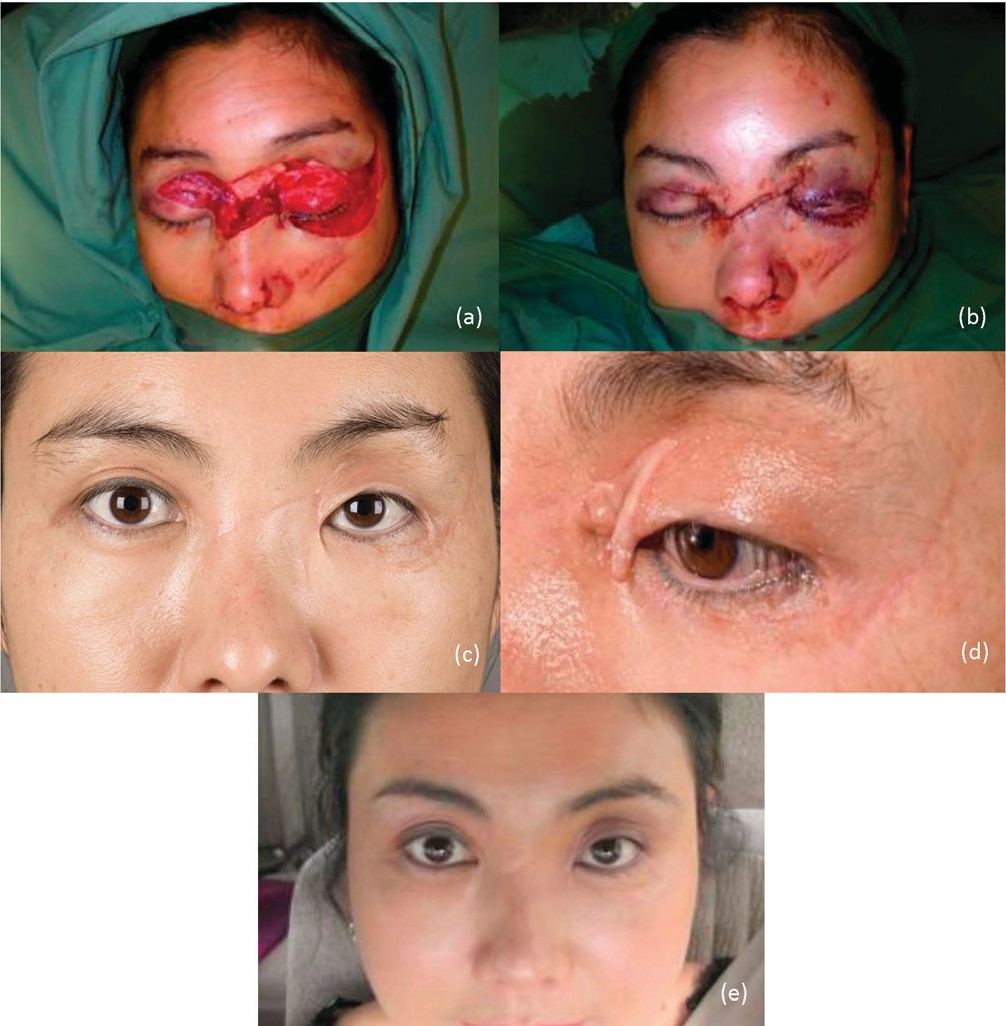Exploring the Emotional and Social Factors That Drive People to Consider Plastic Surgery as a Means of Improvement
The decision to pursue plastic surgery typically prolongs past mere appearances, linking with psychological and social characteristics that merit complete exam. Factors such as self-esteem, pervasive social elegance standards, and the prevalent impact of social networks assemble to form private inspirations for surgical improvement. As these influences come to be significantly famous, understanding the underlying psychological and cultural contexts is vital. What stays to be explored is the extensive influence these variables have not only on personal identity yet additionally on more comprehensive societal standards and worths bordering charm and acceptance.
The Role of Self-Esteem
Self-esteem dramatically affects a person's choice to go after cosmetic surgery. People with reduced self-esteem often regard themselves in a negative light, causing feelings of inadequacy concerning their physical appearance. This adverse self-perception can drive them to look for medical treatments as a method of improving their self-image. The wish for enhancement in one's appearance is frequently linked to a belief that such adjustments will certainly elevate their overall self-regard and self-confidence.

Inevitably, the function of self-worth in the decision-making procedure relating to plastic surgery highlights the intricate interaction between body image, personal complete satisfaction, and psychological wellness. Recognizing this connection is vital for health care specialists to make certain that people are making informed decisions rooted in reasonable assumptions and emotional wellness.
Societal Charm Criteria
Influenced by pervasive media portrayals and social stories, social charm criteria play an important duty in shaping people' understandings of their very own bodies. These criteria are typically defined by an idealized kind of elegance that highlights characteristics such as slimness, youthful vigor, and symmetry. As these ideals are perpetuated through different networks, including advertising and marketing, tv, and movie, people regularly internalize these messages, leading to frustration with their natural look.
The effects of these social standards prolong past visual preferences; they can impact self-confidence, mental health and wellness, and social partnerships. Individuals who perceive themselves as falling short of these standards may experience feelings of inadequacy, motivating a need for cosmetic surgery as a way of attaining social approval. This quest is commonly fueled by the idea that complying with these perfects will certainly enhance not only physical look but likewise social standing and personal gratification.

Influence of Social Network
The impact of social appeal requirements is further intensified by the increase of social media platforms, where curated images and idyllic representations of beauty are ubiquitous. Customers are continuously subjected to filteringed system and edited photographs, which usually show unattainable More Help physical features. This direct exposure grows a culture of contrast, leading people to analyze their own look against these commonly unrealistic criteria.
Social media site influencers and celebs often advertise aesthetic procedures, normalizing the idea that medical enhancements are a viable ways for achieving societal ideals (plastic surgery rancho cucamonga). The presence of these enhancements can create an assumption that undertaking cosmetic surgical treatment is a typical technique, thus affecting people to consider comparable treatments as a path to enhanced self-worth and social approval
Furthermore, the interactive nature of social media sites permits instant responses with likes and comments, further strengthening the desire to satisfy prominent charm criteria. Such communications can exacerbate feelings of inadequacy and drive people toward plastic surgery as a means of gaining validation. Ultimately, social media plays an essential function fit assumptions of elegance, which dramatically affects the decision-making procedures surrounding cosmetic surgery.

Social Point Of Views on Look
Across various cultures, understandings of look are deeply rooted in historic, social, and financial contexts, forming people' views on beauty and value. In lots of cultures, appearance offers as a considerable pen of identification, influencing social condition, professional opportunities, and individual partnerships. For instance, in some cultures, light skin is commonly connected with wealth and opportunity, while others may glorify darker complexion as symbols of toughness and authenticity.
Moreover, traditional elegance standards are usually continued via cultural stories, media representations, and household affects, leading to differing suitables throughout different regions (plastic surgery rancho cucamonga). In Western cultures, the emphasis on young people and physical conditioning usually drives individuals toward cosmetic enhancement, while in particular Eastern cultures, more subtle modifications aligned with standard appearances might be chosen
Globalization and the spreading of electronic media have actually additionally complicated these characteristics, creating a hybridization of elegance ideals that goes beyond geographical borders. As individuals progressively browse these cultural narratives, the stress to comply with details appearance requirements can lead to the desire for cosmetic surgical procedure, showing a complicated interplay of cultural values and personal ambitions. Comprehending these cultural perspectives is vital in resolving the motivations behind cosmetic surgical procedure considerations.
Emotional Effects of Plastic Surgery
Several individuals looking for plastic surgery record experiencing extensive psychological effects that can considerably change their self-perception and emotional health - plastic surgery rancho cucamonga. The desire for physical enhancement usually originates from underlying concerns such as low self-esteem, body pop over here dysmorphic condition, or societal stress concerning appeal standards. For some, the prompt post-operative stage can bring about a momentary boost in self-esteem and complete satisfaction with their look, promoting a sense of empowerment
Nevertheless, these favorable feelings might not be sustaining. Research indicates that while some patients experience boosted self-worth, others may encounter heightened anxiousness or depression if their expectations are not met. This inconsistency can Recommended Reading emerge from unrealistic suitables bolstered by media representation and social stories bordering beauty.
Moreover, the psychological implications of cosmetic surgery expand beyond the individual. Relationships with friends and family might be stressed as social dynamics shift, leading to sensations of seclusion or alienation. Ultimately, the mental influences of plastic surgery are complex and diverse, requiring cautious factor to consider by both potential people and medical care carriers to guarantee educated decision-making and reasonable assumptions.
Verdict
To conclude, the choice to pursue plastic surgery is considerably affected by a combination of self-confidence concerns, social charm requirements, and cultural point of views on look. The prevalent reach of social networks additionally worsens these pressures, promoting impractical perfects that individuals frequently aim to obtain. Understanding these social and mental factors is necessary for resolving the inspirations behind cosmetic surgical treatment, highlighting the need for a much more nuanced discussion surrounding charm and self-acceptance in contemporary society.
The decision to pursue cosmetic surgery often prolongs beyond simple aesthetic appeals, intertwining with emotional and social characteristics that merit detailed exam. Eventually, social media plays a crucial duty in shaping perceptions of beauty, which considerably impacts the decision-making procedures bordering cosmetic surgical treatment.
As people progressively browse these cultural narratives, the pressure to adhere to specific appearance requirements can lead to the desire for cosmetic surgical treatment, showing an intricate interplay of social values and personal ambitions.In verdict, the choice to pursue cosmetic surgery is significantly influenced by a mix of self-confidence problems, societal beauty standards, and social perspectives on look. Comprehending these social and mental factors is vital for addressing the inspirations behind cosmetic surgical treatment, highlighting the requirement for a more nuanced discussion surrounding beauty and self-acceptance in contemporary society.